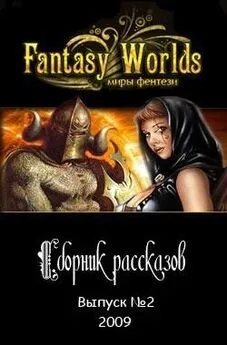Пользователь - WORLDS END
- Название:WORLDS END
- Автор:
- Жанр:
- Издательство:неизвестно
- Год:неизвестен
- ISBN:нет данных
- Рейтинг:
- Избранное:Добавить в избранное
-
Отзывы:
-
Ваша оценка:
Пользователь - WORLDS END краткое содержание
WORLDS END - читать онлайн бесплатно полную версию (весь текст целиком)
Интервал:
Закладка:
The change had happened so gradually - a little bit one day and next day another little bit in another part of his mind - that Lanny hadn't had time to become aware of it, and now couldn't believe it, wouldn't admit it. He imagined that his father must be misunderstanding him, and tried to explain himself - thereby making matters worse than they were before. He would cite things that Robbie himself had told: what the big businessmen had done to cause the war and to prolong it and to get advantages out of the settlement. The Crillon was full of talk about concessionnaires from every nation who were in Paris, pulling wires more or less openly, telling statesmen what to do to protect these coal mines or that oil territory. Grabbing this and threatening to grab that - surely Robbie must know that as well as anybody! Surely he must realize that these were the things which had wrecked the conference!
Yes, Robbie knew all that. Robbie knew that right now Britain and France were squabbling behind the scenes over the oil in Mesopotamia. Robbie knew as well as the Crillon that nothing in the world but fear of Germany would keep Britain and France from turning against each other in that dispute. Robbie knew that the two nations were still trying to hold on to Baku with its oil, and had even succeeded in having a vessel flying the American flag in the Caspian Sea, in the effort to overawe the Bolsheviks and keep them out of their own country's oil fields. And knowing all that - why was Robbie so disturbed when his son named the big oil promoters among the enemies of a sane peace?
There was a very special reason, which had to do with Robbie's crossing the ocean. Perhaps he had made a mistake in not mentioning it earlier in the conversation. An oil geologist whom he had known for many years, and who had worked for the big companies in the Near East, had come to Newcastle on purpose to interest him in a project for getting a concession in Eastern Arabia. After hearing his story, Robbie had got together a group of his friends, men who had made money out of Budd dividends and were looking for a place to invest it; they had formed a syndicate, and Robbie was here to work on the project, to interview representatives of the Arabs and pull wires with the British and French officials, as he knew so well how to do. Some Americans were going to get more than paper promises out of all the blood they had poured into the soil of France, and the billions of dollars' worth of food and clothing, oil and machinery, guns and shells and what not which they had ferried across the ocean to France and England!
VI
Robbie behaved like the battalion chief of a fire department who arrives on the scene and discovers that he has a dangerous conflagration on his hands; he sent in a second and a third alarm, brought up all his apparatus, and started to flood his incandescent son with arguments. Surely Lanny couldn't have watched modern war without realizing that oil was vital to a nation! Not a wheel in a Budd plant could turn without it; and what was going to become of America, what would be the good of dreams about liberty, democracy, or other sorts of ideals, if we failed to get our share of a product for which there was no substitute? All over the world the British were grabbing the territories in which there was any chance of oil; they were holding these as reserves and buying our American supply for immediate use - it was their deliberate policy.
"Look at Mexico!" exclaimed the father. "Right at our own doors they are intriguing, undermining us, freezing us out. Every official in the Mexican government is for sale and the British are there with the cash. That is 'law and order,' 'freedom of trade,' 'peace' - all those fine phrases! Everywhere an American businessman goes his British competitor is there with his government behind him - and we might as well quit and let them have the world. Fine phrases make pleasant week-end parties, Lanny, but they don't lubricate machinery."
"The Crillon is hoping to adjust such matters through the League of Nations," argued the son.
"Did anybody at the Crillon ever persuade the British to give up anything in the final showdown? And if you had an insider to advise you, you'd see that one demand after another is to protect the oil they have or to get more."
"But what's to be done about it, Robbie? The British and French are begging to continue the Supreme Economic Council, but the Americans insist upon ending it and going back to unrestricted competition."
"That's because we know the British are bound to dominate the Council. Imagine the nerve of them - each of their dominions to have a vote in the League, while the United States has only one!"
"One vote will be enough for a veto," countered Lanny, who knew that League Covenant pretty nearly by heart.
"That's the silliest thing in the whole scheme," declared the father; "it means that the machine will be stalled from the outset. I read somewhere that they had such an arrangement in old-time Poland - any knight could rise in the assembly and veto any measure and kill it. A nation couldn't survive on such a basis, and neither can a League of Nations."
Lanny had heard all these arguments; he knew his father's mind inside out. Nor was he conscious of any disagreement. What Robbie said was true, and likewise what Lincoln Steffens said; it was just that they drew different conclusions from the facts. But Lanny had better not say that, because then the father would repeat his arguments all over again. Better agree with him as far as you could, and keep the rest of your ideas to yourself. That was the course which Robbie had recommended during the years that Lanny had lived in France at war; and now Lanny would apply the method to its teacher.
VII
Robbie told all about his business project: who was backing it in America and who was to be approached in London. It wasn't a big one, as oil projects went; only about eight million dollars, but there would be more where that came from if Robbie continued to be satisfied about the prospects. It was a fast game they were going to break in on; in telling about it the father used the language of sport, of gangsters, of war - it was all of those things. Zaharoff had gone into oil; no munitions people could stay out, for it was oil that had won the last war. Did Lanny realize why the German armies had so suddenly begun clamoring for an armistice? It wasn't because they couldn't fall back and defend a new line; it wasn't because of revolts at home; it was because the Rumanian oil field had been destroyed, and the surrender of Bulgaria had cut them off from the southeast, and there was no more oil to run the tanks and trucks without which armies were stalled.
Lanny perceived that the money his father had made was burning a hole in his pocket. The idea of settling back and resting hadn't occurred to him, and it would do no good to suggest it. The purpose of having money was to get more. Money was power, the ability to do things. Money was patriotism, also. Robbie told about a Dutch bank clerk of the name of Henri Deterding who had forced his way into the oil industry and now was the master of Royal Dutch Shell; it was he who had kept the British fleet supplied with fuel all through the war. The British had had to meet his terms, and, as a result, little Holland was one of the most prosperous countries in the world - and with hardly any army or fleet of its own!
American money had made it possible for the British to take Mesopotamia from the Turks and keep it. Said Robbie: "If we hadn't sent our men and supplies, the Germans would be getting that oil right now. So why shouldn't our country have a share? We'll take in some influential Britishers and give them a chance to co-operate; but if they won't we'll use the power of the government and make them give up."
"You mean you'll threaten them?" asked Lanny.
"Not even an argument," said the father, smiling. "Just a little understanding among gentlemen."
"You'll have to get a new administration in Washington," ventured the youth; and Robbie said he hadn't overlooked that. Wilson's peace treaty was going to be dumped into the ashcan, and his fool League with it. There would be a Republican President, and a State Department that would understand businessmen and back them up.
"Believe me," said Robbie, "the haughty gentlemen of this 'City' know how to give up when they have to. Some day you'll see them make Robbie Budd a Knight Commander of the Bath - as I'm told they're planning to do for a Greek ex-fireman who's got hold of their munitions industry!"
VIII
Hitherto in the life of this father and son the younger had been bubbling over with interest in the elder's affairs, eager to go with him and share what he was doing. And here was another chance. Lanny would only have to say: "Can I help you with this, Robbie?" and his father would let him attend the conferences, would give him a block of stock in the enterprise, and make him, in effect, a partner. Perhaps Robbie had been counting upon it - for now, having been trained in the duties of a secretary, the son could be of real help. But the father was too proud to ask; he waited for his son to speak - and Lanny didn't speak.
Only six months had been needed to make that difference; to fill Lanny's mind, not merely with doubts and questionings, but with a distaste which startled him when he came face to face with it. He just didn't want to be in the oil business! The very thing which made it so important to Robbie had made it in the eyes of the Crillon liberals the arch-malefactor of the time. Five years ago it had been possible for Lanny to think of intrigues and battles over the selling of guns and cartridges as romantic and exciting; but now it was impossible to get up such feelings about an oil concession and pipeline.
So, while the father went to keep the first of his appointments, Lanny walked on the Embankment, watching the traffic on the river and saying to himself: "What is it that I really want to do?" He pictured his life if he should become Robbie's London representative. He would have a sumptuous office and meet the important men of the City, also of Whitehall; Rosemary, Margy Petries, and others of the ladies would put him into the social whirl; they would find him a rich wife, and his father would see that he made all the money he wanted. He would spend his time figuring how to outwit Zaharoff and Deterding and lesser men of that sort; he would be in a game, or racket, or battle, in "which there was no rest, no let-up-it was dog eat dog, and if you didn't get your grip on the other dog's throat, he would get his grip on yours, and that would be your finish.
Lanny's fancy moved on to that peaceful Cфte d'Azur, with sunshine and blue water, and air always warm, except at night, or when the mistral blew. There were a lot of fashionable goings-on, noise and distraction, gambling and vice, and doubtless it would be worse since the war; but you didn't have to bother with it, you could go your way and let the wasters go theirs. In the living room was a piano, good enough when it had been tuned, and a great stack of music which Lanny had played through and would like to tackle again. He had been to concerts, and heard new music which he would try out. In the storeroom of the studio were all but a few of Marcel's paintings; and now, fresh from an exhibition, Lanny would view his stepfather's work all over again and compare it with what he had seen. Also there were a score or so of wooden cases, containing the books which his Great-Great-Uncle Eli had willed to him; Lanny promised himself an adventure unpacking these and having shelves made for them. He hadn't liked New England any too well, but he thought he might come to know it better through its poets and sages than through its country club gentry and munitions makers.
Читать дальшеИнтервал:
Закладка:




![Галина Романова - Лицензия на happy end [litres]](/books/1058996/galina-romanova-licenziya-na-happy-end-litres.webp)
